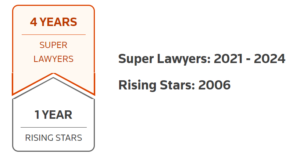Throughout my litigation career, I have found that I have been hired to take over and correct the course of a family law case that has gotten off track. There are two major lawyer-centric reasons that I have encountered for a case not developing in accordance with client goals and strategies. First is the lack of sound litigation tactics—a weak plan or faulty approach to contested issues. My father used to like to tell me that “proper planning prevents poor performance.” To a great extent he was right. Second, and the focus of this article, is the absence of professional objectivity in the lawyer-client relationship.
Family law clients involved in divorce proceedings bring with them varying degrees of emotional stress and worry to their cases. It’s as perfectly natural as it is expected. Rare is the client who is not emotionally invested in the litigation and the outcome of their legal case—especially in family law matters. Often, clients analyze their issues at hand and promote a strategy or want to employ tactics developed from a subjective perspective. They know only what they know from their relationship, which is often dysfunctional in some respects, and extrapolate from those experiences how the case should develop.
A client’s history and experience in their marriage is a very important part of case development, to be sure. Massachusetts divorce law compels the Probate and Family Court to consider and weigh the facts of a divorce case in rendering an equitable judgment. But properly presenting that history and experience in a court of law is essential to obtaining fairness from the judicial system. In short, garbage in, garbage out. And it is at this juncture where a lack of professional objectivity in the lawyer-client relationship can make a case go off track.
Without being detached from a client, a family law litigator should remain emotionally uninvested in the case. That doesn’t mean the lawyer should be dispassionate about their advocacy. Not at all. But once the lawyer takes the subject matter on at a subjective level, they are providing ineffective advocacy, at best. I recently saw a lawyer’s advertisement on social media that made me cringe (I see too much lawyer advertising that makes me cringe, to be honest). The lawyer was engaged in a personal grooming routine while talking about handling divorce cases. I also see references time and time again on websites and social media where the lawyers talk about their anecdotal divorce experiences. Some have written tell-all’s about themselves and their journeys through their own divorce process.
If a professional’s own divorce is so close to the surface of their daily life that they put it on display as a reason to hire them to represent you in your divorce, my opinion is to steer clear. In a contested divorce, a client needs an advisor and advocate whose focus is on the client’s facts and circumstances, and the client’s goals. The lawyer’s divorce case isn’t the client’s divorce case. Clients are far better served by an objective professional—an advocate not an activist, an advisor not a commiserator. Clients should be paying lawyers to execute proper plans, not provide pity. To my mind, attorneys do a disservice to their clients and compromise the practice of law when they use this tactic of familiarity.
All too often I find myself the second attorney in a case fixing what was broken because the first lawyer the client chose was relatable but ineffective. The Probate and Family Court is a court of equity, which means that the system is infused with a fair amount of discretion. That is a fact. And it is a fact that demands keeping an objective and well-developed plan of approach by an impassioned advisor and advocate.










